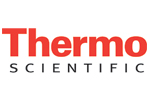08:00 | Registration |
|
Session: Growth Optimization for Food and Biofuels |
| |
09:30 |  | Keynote Presentation Metabolic Engineering of Transgenic Plants With the Omega-3 Long Chain Polyunsaturated Fatty Acid Biosynthetic Pathway - A Terrestrial Source of Fish Oils
Johnathan Napier, Principal Investigator, Rothamsted Research, United Kingdom
Fish oils have proven roles in preventing cardiovascular disease but a diminishing natural resource. We are using transgenic plants to provide an alternative, sustainable terrestrial source of these important fatty acids, ensuring optimal nutrition for all. |
|
10:00 | Systemic Protein and RNA Signaling in Flowering Induction
Yiguo Hong, Professor, Hangzhou Normal University, China
In this presentation, I will discuss how to convert a plant flowering time integrator into a useful gene allele for molecular breeding of novel crops with increasing seed yields, as well as a new twist to reveal the nature of florigen. |
10:30 | Coffee Break and Networking in the Exhibition Hall |
11:15 |  | Keynote Presentation Crop Biotechnology: Prospects and Opportunities
Jim Dunwell, Professor, University of Reading, United Kingdom
This review summarizes important areas of activity in crop biotechnology likely to be exploited over the medium term (10–20 years), with an emphasis on agronomic traits. |
|
|
Session: Systems-Based Approaches & Genomic Mapping |
| |
11:45 |  | Keynote Presentation The Use of High-Throughput Transcriptomics for Biomarker Development in Agriculture
Michael Pfaffl, Professor, Technical University of Munich, Germany
This talk provides an overview of the latest transcriptomics based technologies in biomarker discovery after illegal hormone application. These –omics technologies can provide essential information on the mRNA expression of hormone regulated genes across multiple tissues, organs, treatment stages, and experimental trials. It highlights recent gene expression results on mRNA and microRNA level derived from quantitative RT-PCR and next generation sequencing. On the basis of the expression results reliable candidate biomarker were selected. To verify if these gene expression changes could act as first valid biomarkers bio-statistical methods were applied. Principal Components Analysis and Hierarchical Clustering were successfully used to demonstrate the potential of the transcriptomic approach for the development of a new screening system and to introduce new gene expression biomarkers. |
|
12:15 | ![Kbiosystems]() Technology Spotlight: Technology Spotlight:
Advancement in Technology For the Sealing of Mirco-Well and alternative Format Plate and Tubes
Alan Shepherd, Technical Director, Kbiosystems
As the MWP and sample tube manufacture has improved, and the demands for miniaturisation, the requirement for precision and repeatable sealing has become ever more essential, KBiosystems are now developing and manufacturing nextgen Sealing devices that provide both precision accurate seals with minimal deformation the MWP. The adoption of the MWP format into the clinical market has placed demands for data logging and real time information transfer during and post sealing operations the nextgen sealers ensure these demand are met. This spotlight session will highlight the new techniques for more reliable and robust sealing.
|
12:30 | Lunch and Networking in the Exhibition Hall |
12:45 |  Free Workshop Free Workshop
Advancement of Separation, Purification and Crystallography from Agilent Technologies
|
13:30 |  Free Workshop Free Workshop
High Content Screening for Compounds and Genes Affecting Bacterial and Viral Infections
|
13:30 | Poster Session |
14:15 | The Search for New Genes Conferring Durable Disease Resistance
John Walsh, Research Leader, University of Warwick, United Kingdom
We have identified the major gene controlling broad-spectrum resistance to a plant virus. In collaboration with Syngenta Seeds, a gene-specific marker is now being used to introgress the resistance in to commercial plant lines. The nature of the resistance indicates that it may be durable. |
14:45 | Phloem micro RNAs and Their Involvement in the Systemic Regulation of Stress Responses and Development
Julia Kehr, Centre of Plant Biotechnology and Genomics, Polytechnic University of Madrid , Spain
This presentation will summarize the current knowledge about phloem micro RNAs and their long-distance mobility between organs. It will also discuss the potential roles their translocation plays during nutrient deficiency defense responses or the regulation of development. |
15:15 | Coffee Break and Networking in the Exhibition Hall |
16:00 | Integration of Small RNA, mRNA and Degradome Profiling During Fruit Development
Tamas Dalmay, Director/Professor, University of East Anglia, United Kingdom
Combined analysis of small RNA, mRNA and degradome profiles during tomato fruit development revealed many new microRNAs and microRNA targets. Correlation between microRNAs and their targets will be discussed. |
16:30 | Transcriptional Control of Gene Expression by microRNAs
Wolfgang Frank, Assistant Professor, University of Freiburg, Germany
The targeted deletion of all DICER-LIKE genes in the moss Physcomitrella patens led to the elucidation of the complexity and function of endogenous small RNA pathways in this species. |
17:00 | Visualization of Plant Sequence and Genotype Data and Analysis
David Marshall, Head, Scottish Crop Research Institute, United Kingdom
|
17:30 | Drinks Reception |








